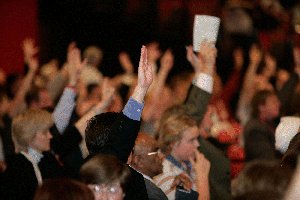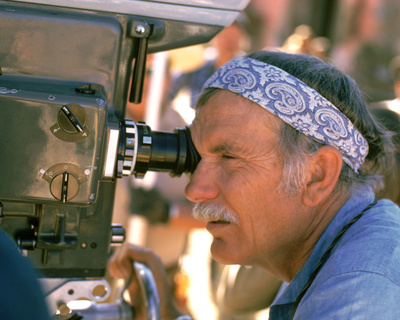
I was back from university for the summer and working in my local pub. I worked in bars at uni so I’d been given the responsibility of going in at 10am to get the place ready for opening at 11am. It was quiet. The pub had been my regular for a few years and I was always struck by how different the old 16th century building could be when the only noise was the low, soft hum of the fridges and the clanking cleaners bucket.
It was, everyone remembered afterwards, a beautiful, bright clear autumn day. I carried the pub billboard onto the pavement out front and looked around the benches scattered around the town centre. Everyday from about 10:45am onwards they would be occupied by the regulars waiting to come and assume their usual perches at the bar at the stroke of 11 o'clock. Today was no different.
The regulars were all in that day. A retired gardener everyone called ‘Greengrass’ who never bought his own drink, a guy who had one day a week with his kids and would bring them in and plomp them in the corner with a coke while he drank with his pals, two old ladies who drank half a pint of Stella with a dash of lime each.
Around 2pm another regular came in, Rocky they called him because he looked like Neil Morrissey in ‘Boon’. He was a postman just off his rounds. “Pint of four X” he asked before saying “And turn the tele on, there's been a plane crash in New York, it was on the radio in the van”
I flicked on the big screen we used for sports. It went straight to BBC 1 and I was about to switch to a news channel when I saw that they were already covering it. Whatever had happened was big.
There, billowing smoke silently on the screen was one of the Twin Towers in New York. Behind me, at the bar, the regulars shifted on their stools for a view, except for Greengrass who was wondering where his next pint was going to come from. “Fucking hell” I remember all of them saying. They fell silent when the shot changed and showed the second tower also pouring smoke into the clear sky.
Speculation started immediately. One suggested rockets, another that one plane had hit both towers. Soon the TV news showed both wrong. As two separate planes were shown hitting each tower in turn we all realised that this was an attack.
While I had been working, while the regulars had been drinking, 3,000 people had been murdered in New York City.
A decade has passed since then. It’s been a decade which has seen more murders committed in the same cause that drove the 19 killers of 9/11. In Madrid, Bali, Mumbai and London, fanatics have seen fit to murder people who never harmed them to further their own agendas.
It’s been a decade which has seen military action on a scale few expected to see again after the end of the Cold War. In the immediate aftermath of 9/11 a broad coalition of countries went with the United States into Afghanistan to topple the Taliban government which had sheltered the inspiration for the attack, Osama Bin Laden. At the end of that decade many of those countries are still there.
In 2003, with the war in Afghanistan still going, the United States led a smaller coalition, including Britain, into Iraq to topple Saddam Hussein. Less clearly justified by 9/11 this was always more controversial.
It has been a decade where, until the financial crisis hit, the attacks of 9/11 and the responses of the various actors defined the political landscape. Your attitude to terrorism and the ‘war on terror’ were the standard against which your politics and your personality were judged.
What have we learned in this decade? Not as much as we should have. People are generally rather good at learning the lessons they wanted to learn. For the neo cons who had been speculating on intervention in the Middle East even before 9/11 the lesson was that they should intervene in the Middle East. For the left, which had always opposed anything the United States had done, the lesson was to oppose anything the United States did.
The one undeniable lesson was that in the 21st century mans capacity for cruelty to his fellow man remained as great as ever. But it also taught that his capacity for compassion for his fellow man and for sacrifice remained as great as ever.
Consider a man like Pat Lyons, a fire fighter from Brooklyn who left his heavily pregnant wife to go to work that morning. When the call came he selflessly ran into the burning North Tower to save the lives of total strangers because it was his job. Pat Lyons never saw his son, Patrick, who was born on October 7th 2001. He was one of the 343 New York fire fighters who died at the World Trade Center.
Compare this to the cruel and selfish actions of Mohammad Atta, murdering to get his hands on 72 virgins. But there were more of the selfless than the selfish, more fire fighters than hijackers, more heroes than villains even on that awful day.
On that morning ten years ago today as I worked at the Swan Geoffrey Campbell went to a conference hosted by a publishing company at the World Trade Center. A couple, Dinah Webster and Neil Cudmore, who were planning to marry, were working alongside each other there. So were brothers Andrew and Tim Gilbert. Vincent Wells who worked for Cantor Fitzgerald on the 104th floor of the North Tower was celebrating his 23rd birthday. Christine Egan went to visit her brother Michael who worked on the 100th floor of the South Tower. Graham Berkeley was on United Airlines flight 175 from Boston to Los Angeles. All of them were British.
They all died that day. In total 67 Britons died in lower Manhattan on September 11th 2001 making it the deadliest terrorist attack in British history.
This wasn’t an attack on America it was an attack on a way of life. 9/11 wasn’t about blowback, Imperialism or Israel. It was about people like us living like we live who were killed out of the clear blue sky. Remember them today.







